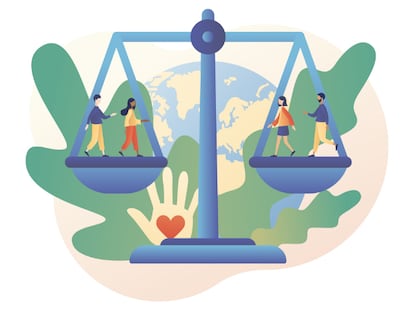Cable sobre la homosexualidad en Gabón: no es ilegal pero sigue siendo tabú
| ID: | 242569 |
| Date: | 2010-01-06 09:16:00 |
| Origin: | 10LIBREVILLE10 |
| Source: | Embassy Libreville |
| Classification: | UNCLASSIFIED//FOR OFFICIAL USE ONLY |
| Dunno: | 10STATE170365 |
| Destination: | VZCZCXRO5509 RR RUEHBZ RUEHDU RUEHGI RUEHJO RUEHMA RUEHMR RUEHPA RUEHRN RUEHTRO DE RUEHLC #0010 0060916 ZNR UUUUU ZZH R 060916Z JAN 10 ZDK CORRECT PARA MARKINGS & ADDING SENSITIVE CAPTION FM AMEMBASSY LIBREVILLE TO RUEHC/SECSTATE WASHDC 1610 INFO RUEHZO/AFRICAN UNION COLLECTIVE |
UNCLAS LIBREVILLE 000010 C O R R E C T E D COPY - correcting paragraph markings & adding "SENSITIVE" Caption SENSITIVE SIPDIS DEPARTMENT FOR AF/FO, AF/RSA (MAZEL, GRIESMER, DEES) E.O. 12958: N/A TAGS: PGOV, PHUM, GB SUBJECT: GABON: VIEWS ON SEXUAL ORIENTATION AND GENDER IDENTITY REF: STATE 170365 1. (SBU) SUMMARY. Homosexuality is not a polarizing issue in Gabon. Homosexuality is currently not illegal, but remains a social taboo within this highly conservative population. As a result, public awareness of homosexuality is low and openly homosexual individuals are difficult to find. However, we would expect that an attempt under the Ali Bongo administration to criminalize homosexuality and the ensuing public debate of the issue would be divisive to the detriment of the rights of homosexuals. END SUMMARY. ---------- BACKGROUND ---------- 2. (SBU) Late President Omar Bongo Ondimba directed that the question of homosexuality is a moral and social issue, not a legal issue. During Omar Bongo's long tenure as President of Gabon all attempts to legally marginalize the homosexual community in Gabon failed. Current President Ali Bongo has not yet weighed in on the issue. In the past, a few isolated complaints have been raised with the justice system regarding homosexuality, but these have not been pursued by police or investigators. 3. (SBU) Emboffs have been in contact with Anne Marie Mboga, Director of Criminal Affairs at the Ministry of Justice, who says that she is currently drafting a law to criminalize homosexuality. Mboga has just begun drafting and hopes to propose the law this year. Mboga told the embassy that she strongly believes homosexuality "is against the morals intended by God." However, even Mboga is unsure if there is enough support to criminalize homosexuality in Gabon. 4. (SBU) There are no local or international associations promoting gay, lesbian or transsexual rights, nor are the local churches or civic groups actively campaigning against homosexuality. This dynamic may change if a nation-wide debate develops regarding homosexual rights should Mboga's law be presented to the National Assembly. At that point, she might appeal to the evangelical community, though small, for support. To date, she does not have any partners in the National Assembly or the Council of Ministers to introduce or support a draft law. ------- COMMENT ------- 5. (SBU) We believe Mboga's goal of trying to introduce a law this year at the National Assembly is ambitious, given its nascent stage, that she has not consulted widely, and she lacks a strategy to bring it before the legislature. However, we remain concerned that because most Gabonese do not view homosexuality as a human rights issue, there could be little opposition to criminalizing it. Public apathy, not anti-homosexual activism, is the greater danger in Gabon. On the positive side, Omar Bongo's legacy of opposition to criminalizing homosexuality has deep roots in Gabon and is likely to influence a number of long-standing ruling party lawmakers and officials. We would expect the Council of Ministers and President Ali Bongo Ondimba to weigh in before any proposed legislation moves forward. END COMMENT. REDDICK |
Traducción automática. Puede que el texto traducido no sea fiel al original
Tu suscripción se está usando en otro dispositivo
¿Quieres añadir otro usuario a tu suscripción?
Si continúas leyendo en este dispositivo, no se podrá leer en el otro.
FlechaTu suscripción se está usando en otro dispositivo y solo puedes acceder a EL PAÍS desde un dispositivo a la vez.
Si quieres compartir tu cuenta, cambia tu suscripción a la modalidad Premium, así podrás añadir otro usuario. Cada uno accederá con su propia cuenta de email, lo que os permitirá personalizar vuestra experiencia en EL PAÍS.
¿Tienes una suscripción de empresa? Accede aquí para contratar más cuentas.
En el caso de no saber quién está usando tu cuenta, te recomendamos cambiar tu contraseña aquí.
Si decides continuar compartiendo tu cuenta, este mensaje se mostrará en tu dispositivo y en el de la otra persona que está usando tu cuenta de forma indefinida, afectando a tu experiencia de lectura. Puedes consultar aquí los términos y condiciones de la suscripción digital.




























































